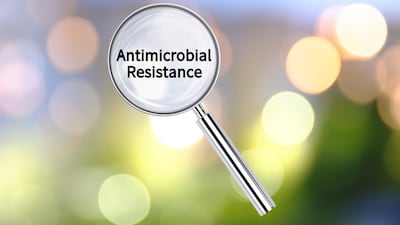NGOs
A discussion with Karen Harris, CFO of the Alzheimer's Drug Discovery Foundation, about the foundation's investment strategy, biotech and investor sentiment at the recent BIO conference and what innovations give her hope for Alzheimer's patients.
Biocon Biologics will look to combine its “scientific expertise with the National Cancer Society of Malaysia’s strong community outreach and patient support network,” after signing striking up a partnership with the NGO providing for supply of three biosimilars.
Jason Menzo, CEO of the Foundation Fighting Blindness, says the organization is adapting its funding strategy, navigating regulatory challenges and accelerating the translation of academic discoveries into industry-led clinical development.
Nonprofits are finding new ways to address market gaps and develop treatments for rare diseases with little commercial attraction.
UK consumer healthcare industry association PAGB is calling on the UK government to explore the Rx-to-OTC switch of at least 25 OTC products over five years, and work with the country's medicines agency to re-evaluate the restrictive criteria for reclassification.
This Thursday (26 October) the United Nations will discuss whether OTC antimicrobial products should be restricted to prescription-only status by UN member states. In advance of this, we catch up with UK association CEO Michelle Riddalls, to learn about the PAGB’s role in crafting the global consumer healthcare industry’s response.
The revised EU Urban Wastewater Treatment Directive, which obliges pharmaceutical and cosmetic industries to contribute at least 80% towards the costs of removing micropollutants from wastewater through quaternary treatments, will place an additional burden of around €2bn per year on German manufacturers, says Pharma Deutschland.
HBW Insight presents a new series profiling regulatory affairs specialists working in or supporting the consumer health and cosmetics industries. In this first installment, we speak to AESGP's Christelle Anquez-Traxler and Oliver Hartmann, senior regulatory science & strategy lead, and regulatory & legal affairs director respectively.
A draft declaration to be presented to the UN General Assembly in September suggests that a “lack of regulation of over-the-counter use of antimicrobials” is one of the “drivers of antimicrobial resistance.” Industry, however, insists that misuse and over-prescription of antibiotics are the primary drivers of AMR, and is advocating for the text to be amended accordingly.
Consumer health, particularly food supplements that make unauthorized medical or health claims, has been a key area of focus for the UK Advertising Standards Authority's recently introduced Active Ad Monitoring system, which captures ads by relevant advertisers from a range of social media platforms, and applies machine learning algorithms to identify and flag likely non-compliant ads, which are then sent to experts to review and act on. This infographic highlights recent ASA rulings against ads for supplements claiming to treat anxiety and stress, menopause, autism/ADHD and weight loss, which were flagged by AI.
Unauthorized medical or health claims for dietary supplements are a key focus area for the UK advertising regulator's new AI-powered Active Ad monitoring system. HBW Insight speaks to the ASA’s head of data science, Adam Davison, in this exclusive interview to find out more about the organization's journey towards pre-emptive regulation.
The UK's consumer healthcare industry association, PAGB, sets out six priorities for the new UK government, following the landslide victory of the Labour Party in the recent general election. One of these priorities is driving Rx-to-OTC switch - something that the UK public also wants, according to the association's latest Self-Care Census, published to mark International Self-Care Day 2024.











